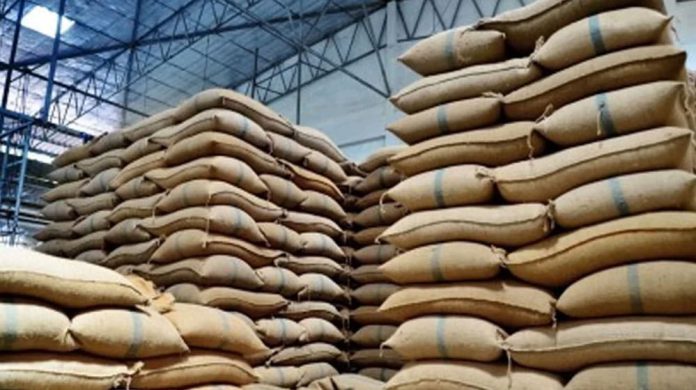On a Sunday, the inaugural shipment of wheat imported from Russia finally arrived at the Karachi Port, marking a significant milestone in Pakistan’s efforts to address the ongoing wheat shortage. Importing wheat through private channels has become necessary to meet the shortfall of three million tons, despite the country experiencing a bumper crop this year. This article explores the shipment details, the government’s decision to allow wheat imports through private channels, and the potential impact on the commodity’s price.

Private Sector Takes Charge:
Under the current policy, public and private sectors are permitted wheat imported from Russia. However, it is the first time the private sector has taken the lead in importing Russian wheat. Managing to secure the wheat for $279 per metric ton, the private sector’s involvement is expected to reduce the ex-mill price of wheat to approximately Rs. 92 per kg. This could significantly relieve consumers and ease the burden of high wheat prices nationwide.
Government’s Response to Flour Crisis:
The decision to wheat imported from Russia was a response to Pakistan’s prevailing wheat shortage and flour crisis. The country faced a severe scarcity of wheat, leading to soaring flour prices. As a step towards resolving the crisis, a Russian vessel carrying 50,000 tonnes of wheat had earlier docked at Gwadar Port in March. Building on this initial import, the government continued to import wheat to stabilize the market and ensure an adequate supply of this essential commodity.
Wheat Shortage and Flour Crisis:
An alarming wheat shortage in Pakistan prompted the circumstances leading to wheat import. Despite a bumper crop, the country still faced a shortfall of three million tons, which necessitated external sources to meet the demand. As a consequence, the prices of wheat flour reached an all-time high, with rates of 10- and 20-kilogramme flour bags rising by Rs50 and 20, respectively.
Positive Impact on Market and Consumers:
The private sector’s initiative to import wheat at a lower cost has the potential to bring down the overall ex-mill price of wheat significantly. As a result, consumers are likely to benefit from more affordable wheat flour, easing the burden on their household budgets. Moreover, ample wheat supplies could stabilize the market and prevent further price spikes, ensuring food security for the population.
Also Read: Will Pakistan’s upcoming Budget Be People And Business-Friendly?
Conclusion
The inaugural shipment of Russian wheat arriving at the Karachi Port is a significant development in Pakistan’s efforts to address the wheat shortage and flour crisis. By allowing the private sector to take the lead in importing wheat, the government has opened up new avenues to meet the country’s demand for this essential commodity. With expectations of reduced ex-mill prices and greater availability, the impact on consumers and the market will likely be positive. As the situation evolves, continued vigilance and proactive measures will be essential to ensure a stable and secure wheat supply in Pakistan.
How useful was this article?
Please rate this article
Average rating / 5. Vote count:














































